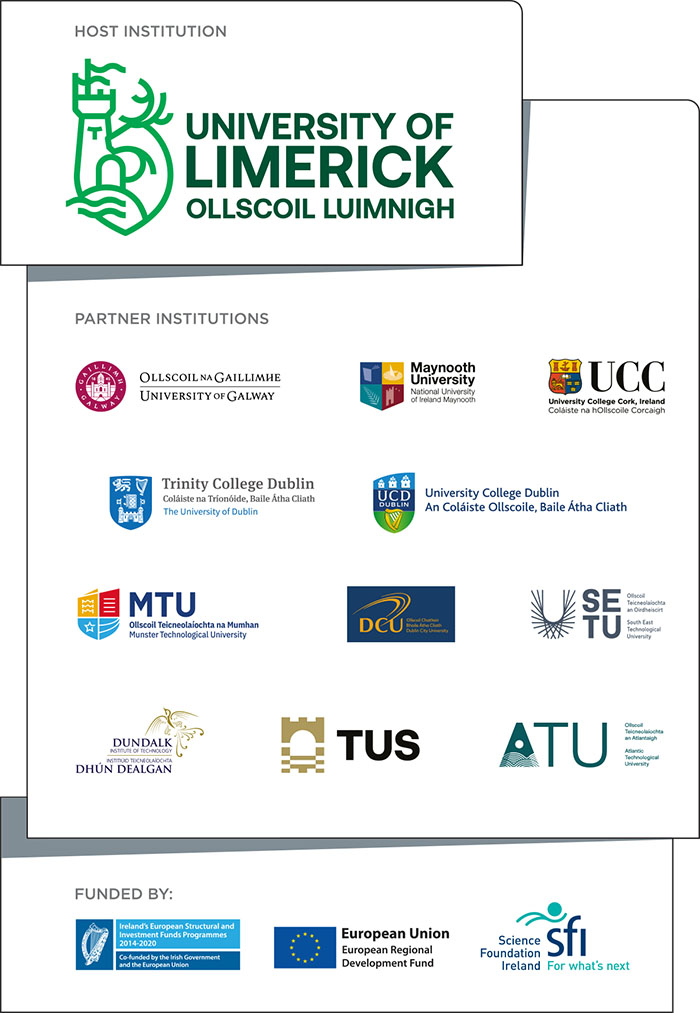Lero receives €133,000 European research grant to commercialise application to boost productivity across culturally diverse teams
You are here
New training prototype has commercial potential for global software development, sales and staff motivation
Pictured at the announcement of a €133,000 research grant to Lero, the Irish Software Research Centre, to commercialise an application designed to boost global collaboration were (from left) Dr Sarah Beecham, Dr John Noll and Dr Helen Kelly-Holmes. Picture: Sean Curtin Photo.
Lero, the Irish Software Research Centre, has received a €133,000 research grant to commercialise a training application designed to boost global collaboration, communications and productivity across culturally diverse teams. The award was made under Enterprise Ireland’s commercialisation programme co-funded by the European Union through the European Regional Development Fund.
“Today´s global businesses require their employees to work in virtual teams and communicate with stakeholders who may not share the same culture or first language,” commented Lero researcher Dr Sarah Beecham of the University of Limerick who heads the project team.
“Potential applications range from global software development to international sales and multinational staff motivation. Cultural training is now recognised as important to many multinational software engineering organisations, who are investing millions in providing communication related courses for their employees.”
Dr Beecham said that emerging needs across the global market mean that the technology could have the potential to create a spin out company in Ireland. Alternatively Lero is looking to licence the technology to an Irish or multinational company with an interest in learning and training applications that boost international productivity across a range of disciplines from research to sales and Human Resources.
“Right now we are seeking out potential industry partners who would like to use VENTURE to add true interactivity to their training scenarios. We are also interested in hearing from potential training organisations with regard to licencing the VENTURE technology.”
She added, “There is increasing research and evidence to show that poor understanding of cultural and linguistic differences between stakeholders can create invisible barriers to effective communication. Our prototype uses an avatar to advise trainees in real time how an email or instant messaging communication could be inappropriate. It adapts to cultural norms depending on the location and nationality of the participants.”
Dr John Noll of Lero who is working on the project added, “While the application called VENTURE initially grew out of multi country software collaboration challenges, we have feedback already from the market that it also has huge potential in training global sales people on how to adjust their approach depending on who they are selling to. It has particular application in Ireland where many tech multinationals have located their EMEA sales headquarters.”
Dr Helen Kelly-Holmes, Sociolinguistics and New Media senior lecturer at the University of Limerick added, “The VENTURE prototype has been validated in a field study involving real users. An independently conducted feasibility study has demonstrated its commercial potential. The concept is versatile and potentially can be applied to a variety of training scenarios, such as diversity awareness, assertiveness, leadership, sales enablement, employee induction, compliance, and software development collaboration.”
VENTURE incorporates three key elements: (1) Chat and e-mail simulators – used by learners to develop communication skills by interacting with a simulated “virtual colleague”. (2) Scenario Designer - used by instructors and content designers to create learning scenarios and (3) Automated Assessment - automatically monitors and assesses the learner’s progress and provides immediate feedback.
The original idea and groundwork for VENTURE came from a PhD research project conducted by ex Lero University of Limerick and University Castilla-la Mancha (UCLM) student, Dr Miguel Monasor.




